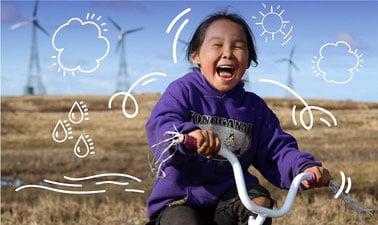MOOC List is learner-supported. When you buy through links on our site, we may earn an affiliate commission.

MOOC List is learner-supported. When you buy through links on our site, we may earn an affiliate commission.
A newer version of this course is available here:
Powering Resilient Communities: A Holistic Approach to Food, Energy, and Water Security
Through a framework combining renewable energy in microgrids, and Food, Energy, and Water (FEW) security and infrastructure, this course synthesizes concepts into a holistic approach to community planning, improvement, and resiliency.
- Explore infrastructure that support food, energy, and water systems in remote, islanded regions, as well as connections among them.
- Compare existing and emerging renewable energy technologies and explore examples from Alaska.
- Examine underlying causes of food, energy, and water insecurity in the Arctic and northern rural communities.
- Analyze the interactions among food, energy, and water usage, for example: energy and water use in the production, transportation, and storage of food; energy usage in treating drinking water and wastewater; water demands for electricity production; appropriate food, energy, and water resource usage and allocation.
- Gain specialized expertise on a variety of Arctic energy issues, from engineering to social science to traditional community knowledge.
- Learn the key concepts with practical, Alaska-focused examples.
- Use real wind and solar data and various analysis tools to make community energy assessments.
- Apply your learning through case studies in each module.
- Learn from National Science Foundation-funded researchers and staff from a variety of disciplines at the University of Alaska Fairbanks, the University of Alaska Anchorage, the University of Calgary, Stanford, and the private sector.
This project is funded by the National Science Foundation, Award #1740075 INFEWS/T3: Coupling infrastructure improvements to food-energy-water system dynamics in small cold region communities: MicroFEWs.
What you'll learn
- Explore current states of food, energy, and water systems in rural Alaska, with broader applications to the Arctic.
- Compare mature and emerging renewable energy technologies with examples from Alaska
- Define how food, energy, and water impacts community well-being in the Arctic and beyond.
- Analyze the feedbacks between renewable energy generation and the local drivers of food, energy, and water security.
- Explora and discuss scientific and social issues that arise when utilizing food, energy, and water resources.
- Organize and quantify food and water security data.
- Use renewable energy resource data to create energy assessments.
- Learn how modular food and water applications can optimize renewable energy inputs in the Arctic and beyond.
- Apply decision making methodologies to develop community level recommendations based on resource energy assessments combined with food and water security information.
Syllabus
Module 1: Life in Alaska
Introduction to Alaska
Introduction to the Food, Energy, Water (FEW) Nexus
Introduction to FEWtureville
Rural Electricity and Heating Systems
Rural Food Systems
Rural Water and Wastewater Systems
FEWtureville Case Study
Module 2: Energy Nuts & Bolts
Diesel Generators in Remote Communities
Renewable Energy Technologies
Energy Resource Data
FEWtureville Case Study
Module 3: Community Well-Being
What is Food, Energy, Water (FEW) Security
Factors Affecting FEW Security
Assessing FEW Security
FEWtureville Case Study
Module 4: Making Decisions
Electrified Load Applications
Analysis Tools: NRMSE Method
Analysis Tools: FEW Indices
Putting It All Together
The Years to Come
MOOC List is learner-supported. When you buy through links on our site, we may earn an affiliate commission.
MOOC List is learner-supported. When you buy through links on our site, we may earn an affiliate commission.
